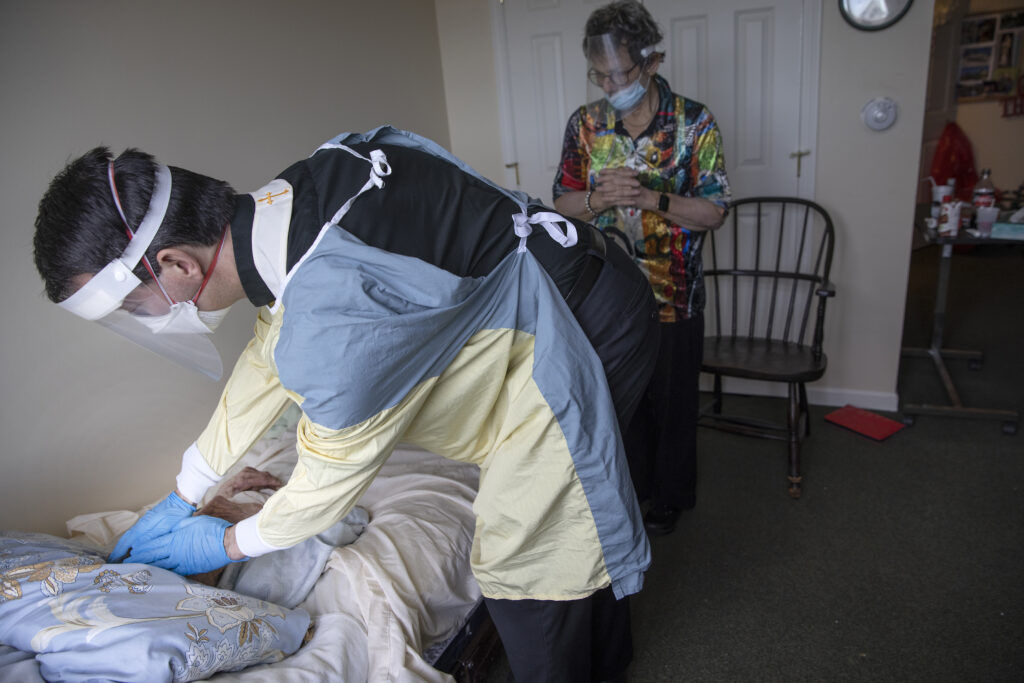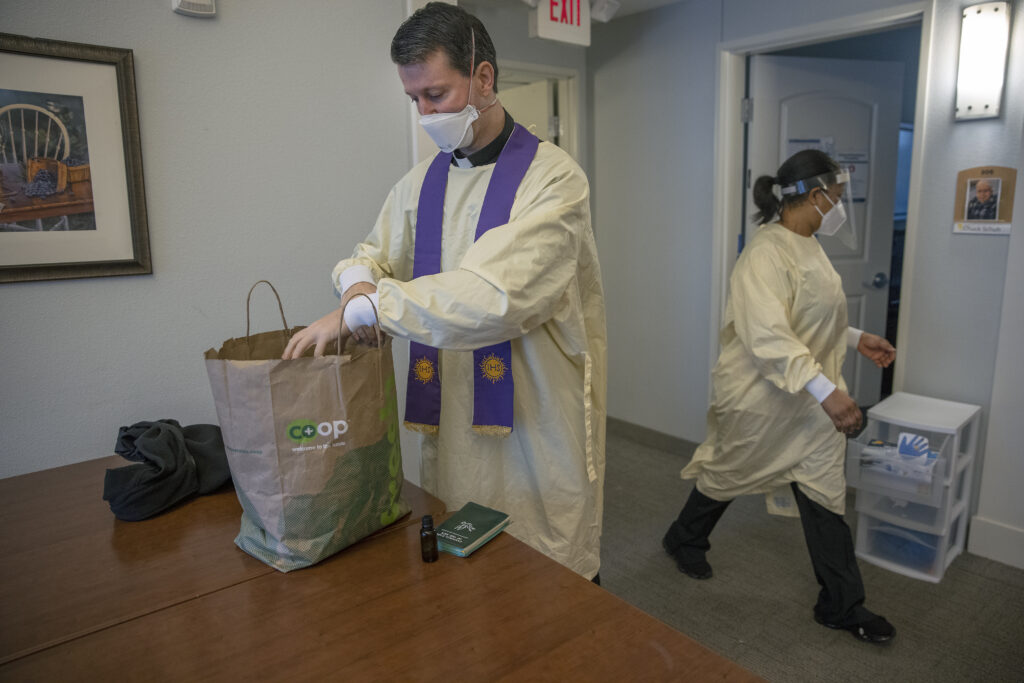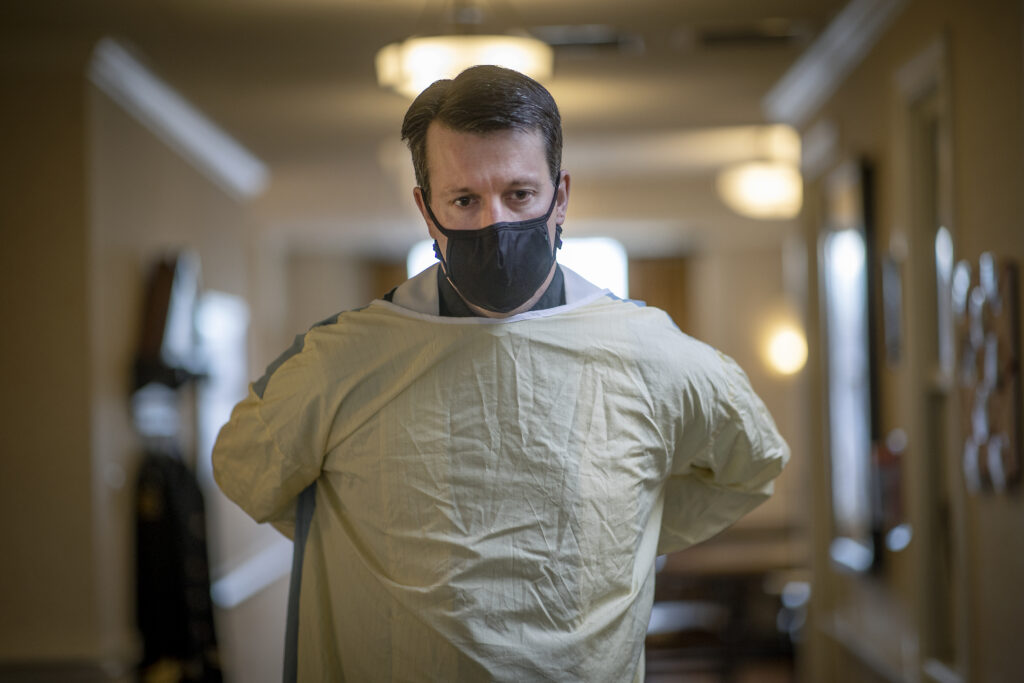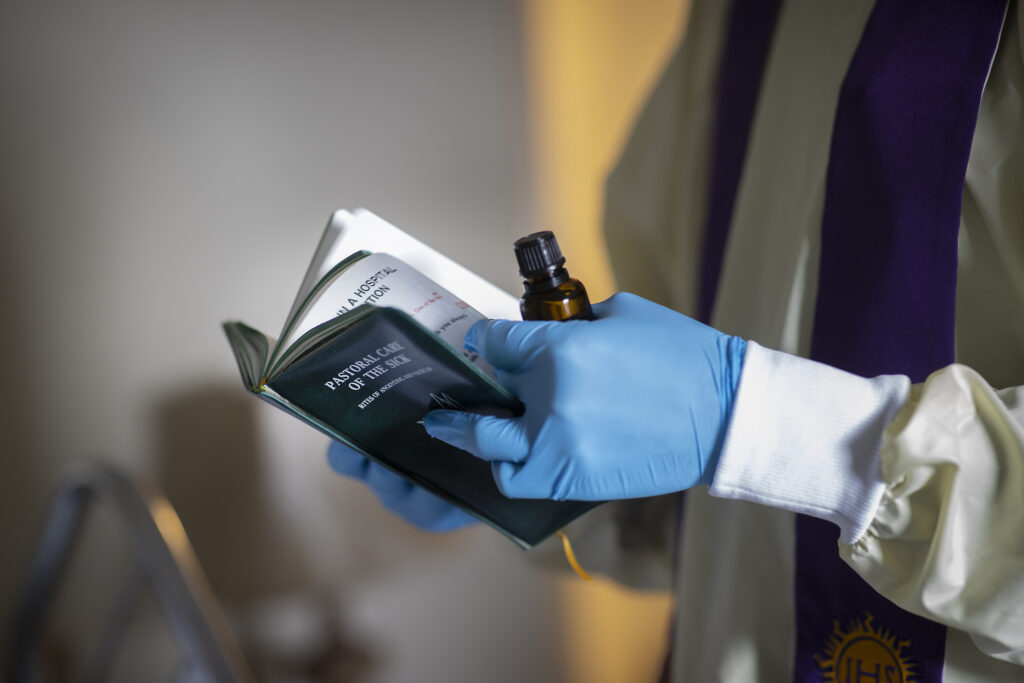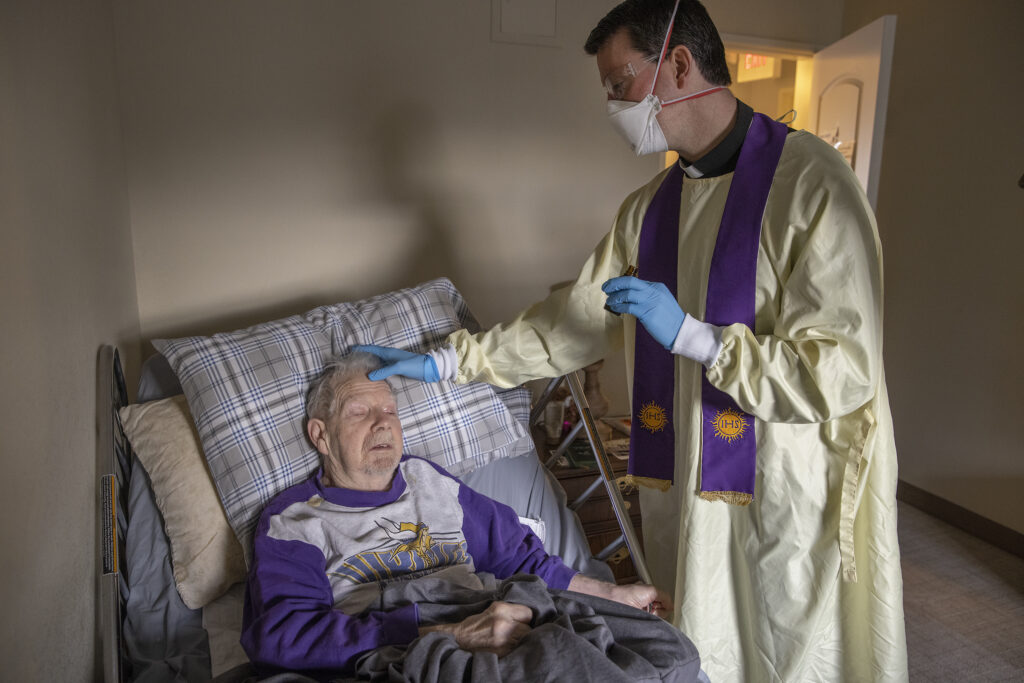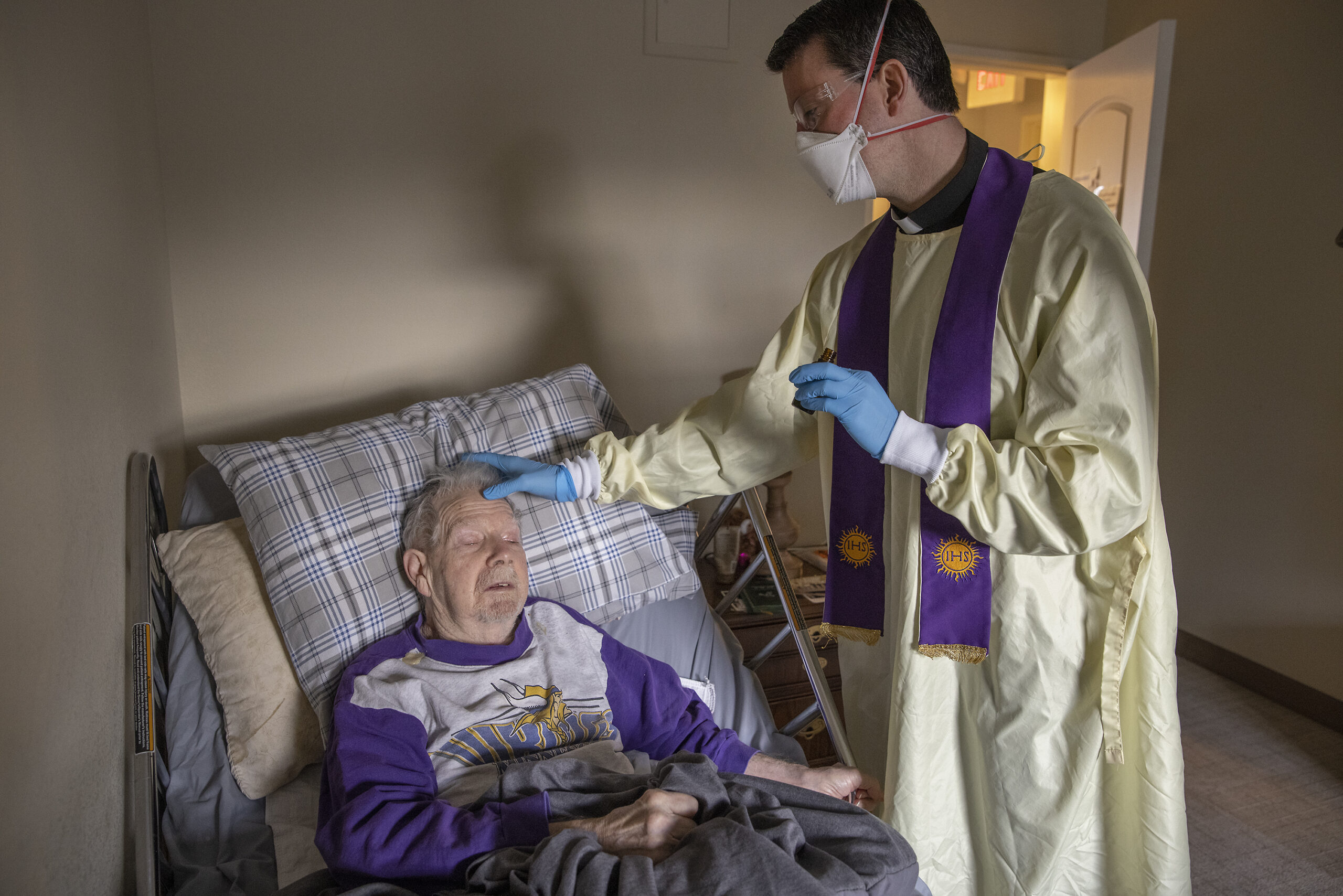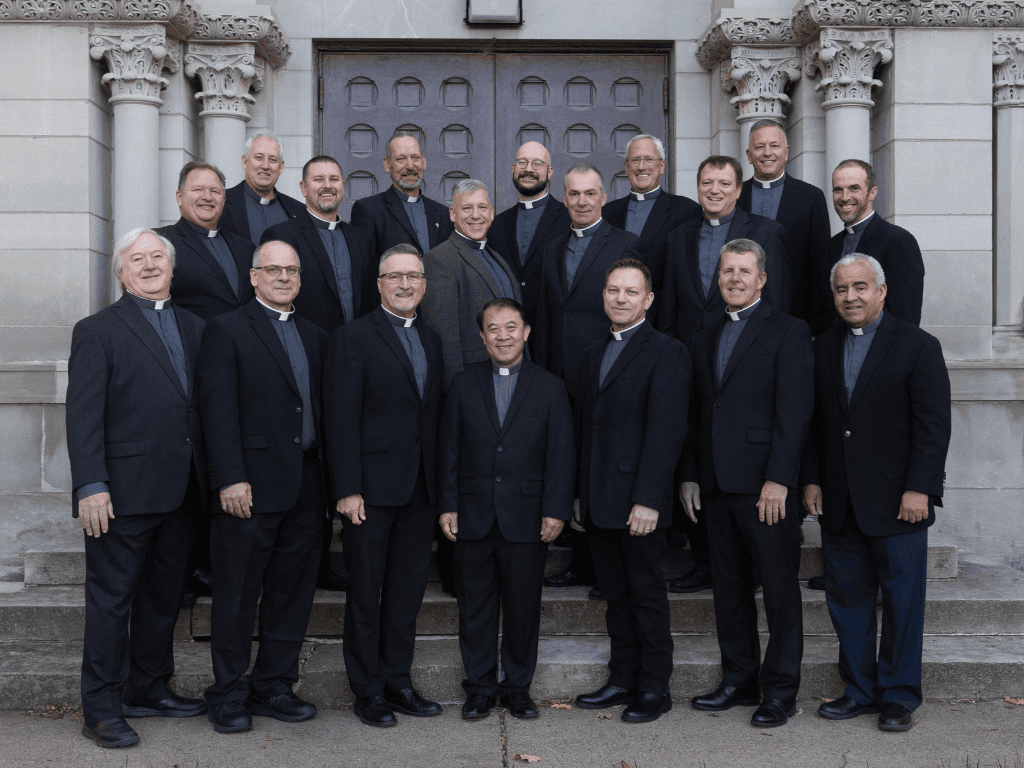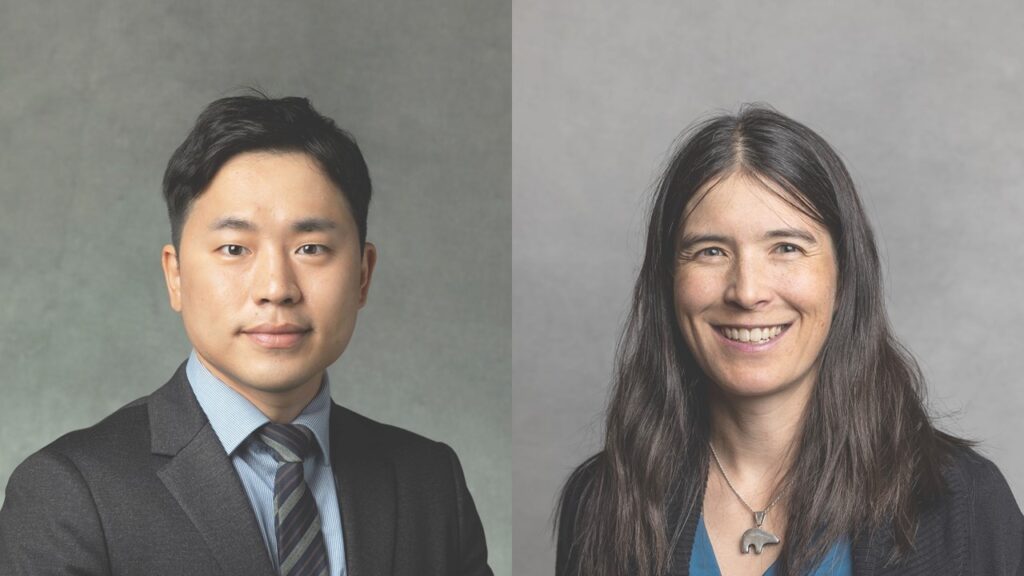During a time of fear and uncertainty, Father Andrew Jaspers ’13 provided comfort to those afflicted with COVID-19.
Jaspers, an adjunct faculty member in the University of St. Thomas Philosophy Department, became a hospital chaplain when the pandemic began. He served full time at Hennepin County Medical Center. “That was ground zero in Minnesota for the hard COVID cases,” Jaspers explained. “It was very scary at first because we didn't know how contagious and how lethal the coronavirus was.”
Jaspers has brought the work he has done as a hospital chaplain to the classroom, where he discusses ethical issues and human nature. In his The Person and The Good classes, Jaspers has found that the questions people ask in the hospital at the end of life or when they’re battling a serious illness are similar to the ultimate questions posed in his class.
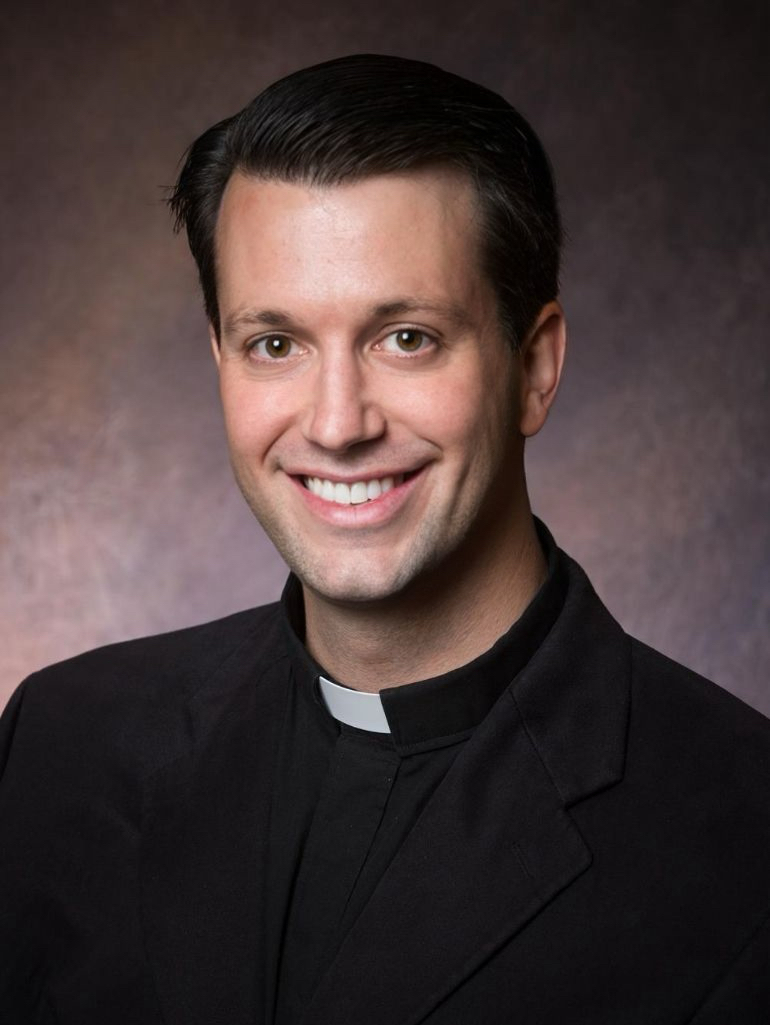
“I’m able to share with my students what people are thinking about at the end of life as most important in life, and what’s most important when they’re seriously ill. In my class, we also talk about finding meaning in suffering. I can give very concrete real cases from the hospital for them to be able to work out where God is in the suffering,” Jaspers said. “So, the experience of being an adjunct professor is a very fruitful one, where I can bring things that I’m doing in my professional life outside of St. Thomas into the classroom. Students tend to like concrete cases like that and asking the deeper questions that I’m dealing with on a daily basis in a hospital.”
Bringing hope in isolation
Jaspers was a part of an Anointing Corps during the height of the pandemic. In this role, Jaspers gave patients the sacrament of the sick, a Catholic sacrament that involves anointing ill patients with oil to strengthen them. “I anointed 500 different people and never got the disease myself. I was going to other assisted living facilities, hospitals, nursing homes and private residences for those who were dying,” Jaspers said.
Seeing the sick and perishing was saddening for Jaspers. Many of the patients in the hospital had been unable to isolate or shelter in place during the pandemic and had become sick. This impacted their families. Jaspers saw firsthand families reducing as loved ones passed away. Another challenge was that for many of the patients, English was not their first language. These patients felt even more isolated as they couldn’t effectively communicate with their care providers.
Since Jaspers speaks Spanish, he visited Spanish-speaking patients and communicated with them in their native language. He prayed with them and served their spiritual needs.
“It was very beautiful because with the help of faith, joy and hope were brought to people,” Jaspers said. In addition to giving patients the sacrament of the sick, Jaspers gave patients the Eucharist, which Catholics believe to be the body and blood of Jesus Christ present in the form of bread and wine. “I could bring the sense of God’s presence and hope to them when they were isolated,” Jaspers reflected. “It was very salvific for many of them. They believed it was an act of God that they were able to see someone who could tend to their spiritual needs.”
Jaspers also encouraged the sacrament of confession. “For Catholics, confession has the power to take away sin, even very serious sin,” Jaspers said. “Sin tends to weigh us down and rob us of hope.” Through confession, Catholics believe that God eliminates the sin, and, as a result, they regain hope.
Jaspers recounted the story of a patient he calls Jim, based on a patient he visited who experienced the power of confession firsthand.
“There was a request for me to see Jim. He had dementia and suicidal ideation,” Jaspers said. “His wife was there taking care of him. But when she left the room as I came in, Jim’s first words were, ‘Oh, you should be here for her, not me, because she’s the religious one.’” I just kept listening, and Jim said that his wife was about to leave him, and he didn’t want to go on with life.”
Jaspers thought it was strange that Jim, who was in his 80s, believed his wife would leave their marriage, causing him to consider ending his life. Jaspers led Jim through the sacrament of confession, believing it might help him. By the next morning, Jaspers came back to follow up with Jim. Jim told Jaspers that he had confessed to his wife his past infidelities. When his wife forgave him, Jim felt a freedom he hadn’t experienced.
“I can’t remember ever feeling like this,” Jim told Jaspers. “It’s like decades of weight has been taken off my shoulders.”
Confession helped give Jim the strength to reconcile with his wife, and he no longer could imagine taking his life. “He was joyful and full of life,” Jaspers reflected. “He was a man who was transformed.”
In addition to his position at St. Thomas, Jaspers serves as a priest full time at North Memorial Hospital in Robbinsdale and the VA Hospital in Minneapolis.
